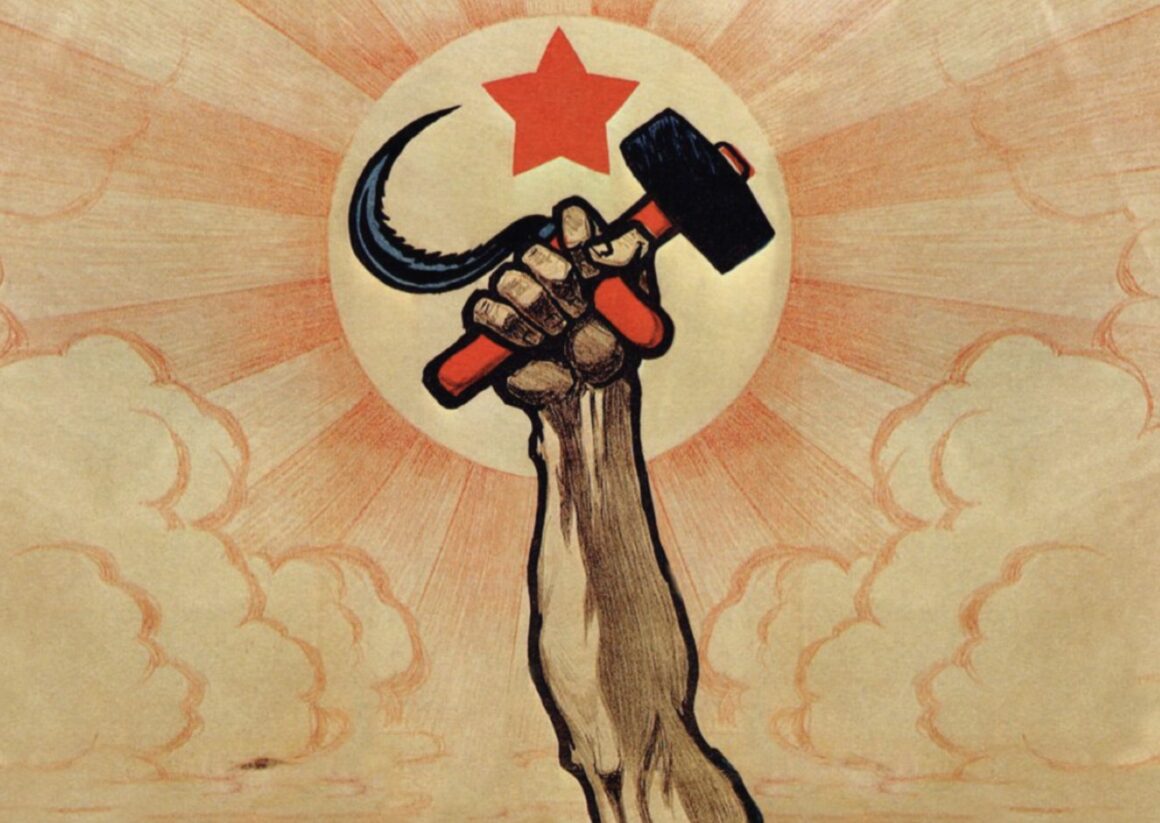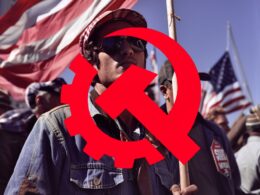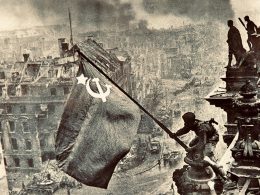Class struggle isn’t synonymous with the left; throughout the history of the proletarian struggle, there’s been a fundamental separation between the left and the parts of the communist movement that are effective. Lenin applied the description of “infantile disorder” to what he called “left-wing communism” because communism is distinct from the ideological dichotomies within bourgeois politics. Its goal was never merely to advance whatever is considered to be the most “leftist,” its purpose is instead to advance civilization to the next developmental stage; which is a task that’s impeded when communists stray from their true mission, and compete over who’s most to the “left.”
In the era of the rising multipolar world; where the PRC is building a prosperous and equitable global economy in place of the decaying neo-colonial order; these ostensibly communist elements that remain ideologically dependent on the left are needing to adapt. They have make their stance appear defensible amid historical developments which fundamentally prove this stance wrong. The type of “socialism” they represent conflicts with that of the Communist Party of China, which has only been able to carry out its Belt and Road Initiative due to being guided by a philosophy of revolutionary optimism; a philosophy which many of the same western Marxists who claim to support China don’t share.
China’s communists came to power by operating with a sense of faith in the people, which incentivized them not to abandon the backward elements of the masses but rather bring them into the struggle. That’s something the predominant elements of modern American Marxism are unwilling to do, which reveals the hidden conflict between their goals and the anti-imperialist cause.
I say this conflict is hidden because among many of the American Marxists who do things like characterize their society’s people as fundamentally reactionary; reject anti-imperialist alliances with anyone outside the “left” niche; or portray the white workers as fundamentally in conflict with the colonized workers; there’s an attitude of admiration for what China and its geopolitical partners are doing. This attitude seems paradoxical, because the global development projects of U.S. hegemony’s challengers are based within thinking that’s profoundly in conflict with the pessimistic dogmatism of these leftists. But the fact that plenty of these leftists have claimed allegiance to these multipolar efforts shows how such political actors are unconsciously trying to compensate for the flaws in their worldview.
Like the Russian social-chauvinists who came to call themselves “Marxists” in the early 20th century, after it became apparent that Marxism was the thing which would save their society, these pessimistic leftists are trying to make their ideology look compatible with today’s primary global progressive developments.
There are dogmatic opportunists who portray China as imperialist, but they can’t gain as much influence within socialist spaces as the ones who promote dogmatic opportunism while claiming to support China. There’s a reason why Ben Norton and the PSL, which try to act like they’re pro-China, are far larger in their presence than any of the anti-China Maoists: Norton and PSL are better able to appear to be on the right side of history, which makes them much more effective types of controlled opposition. Where they reveal their anti-revolutionary character, though, is in how they act like the class struggle is dependent on the “left”; like the Americans which are the most socially progressive are the ones Marxists should be trying hardest to appeal to. From this idea comes a fundamental conflict between the optimistic, practical multipolar projects which these leftists say they’re on the side of; and the pessimistic, impractical program which they think should define the class struggle in the imperial center.
When a leftist acts like anyone outside the most socially enlightened parts of the people is an enemy who’s not worth building a relationship with, they’ve shown themselves to be willing to condemn the class struggle to failure. They’re denying the reality that the majority of Americans have a primary material interest in the defeat of U.S. imperialism; which works to prevent the American people from becoming connected to the anti-imperialist movement, and to the class struggle more broadly. If you gatekeep what types of workers are defined as compatible with the proletarian struggle, then you’ll give no more than a niche minority of the workers a chance at asserting their material interests.
This need to recognize just how many of the people in our society have extremely good reasons for aiding in the revolution doesn’t just apply to the proletarian majority; it also applies to the elements of the lower levels of capital (such as the ones in the Libertarian Party) which are willing to aid the anti-imperialist cause. There’s huge precedent for workers revolutions incorporating these types of capitalist elements into their efforts; namely in China, which defined the four classes of its post-revolutionary era as the proletariat, the peasants, the petty-bourgeoisie, and the “patriotic capitalists.”
Even many within the capitalist class were welcomed into the new China, with the only stipulation being that these capitalists use their wealth to contribute to society’s development rather than hold it back. Anyone of any social class can act as a force for progress, so long as they choose to be on the right side of history; which we’re seeing now with the Libertarian Party’s contributions to the struggle against U.S. hegemony.
If the USA were to undergo a socialist revolution, its newfound connection to the Chinese global economic network would in itself represent a spectacular gain for essentially every element of American society; the only ones who would lose are the monopoly capitalists, their terroristic allies in the intelligence centers whose job is to sabotage anti-imperialist projects, and the corporate media pundits whose job is to vilify projects like the BRI. As The Diplomat’s Dingding Chen has written about why joining the BRI would be beneficial to the USA:
U.S. firms can find some good opportunities in Belt and Road projects, which include infrastructure, financing, environmental, and even energy initiatives. The United States is a leading power in energy and financial services, so U.S. firms should have advantages in Belt and Road projects so long as these projects are open, transparent, and give equal access to all foreign firms. At a time when the U.S. economy is slowly recovering and suffers from a lack of domestic demand, a “going abroad” strategy would provide more stimulus to the sustainable growth of the U.S. economy. Moreover, U.S. domestic infrastructure projects can be improved by embracing Chinese firms and capital, provided they follow U.S. domestic investment and environmental rules.
Under workers democracy, these U.S. firms would likely come under state control, as would most of the rest of the economy; and many of the petty-bourgeois elements which have supported the anti-imperialist cause would object to this, but debates and contradictions are inherent to class struggle. After Americans have defeated their common enemies within the highest levels of capital, they’ll have new questions to confront. Class struggle is a process of change and reinvention, where once you’ve rectified what used to be the primary contradiction, new contradictions take on that predominant role. We shouldn’t fear engaging in this process, we should embrace every task that we encounter throughout it. That’s the only way we can bring about progress of any kind.
————————————————————————
If you appreciate my work, I hope you become a one-time or regular donor to my Patreon account. Like most of us, I’m feeling the economic pressures amid late-stage capitalism, and I need money to keep fighting for a new system that works for all of us. Go to my Patreon here.
To keep this platform effective amid the censorship against dissenting voices, join my Telegram channel.








